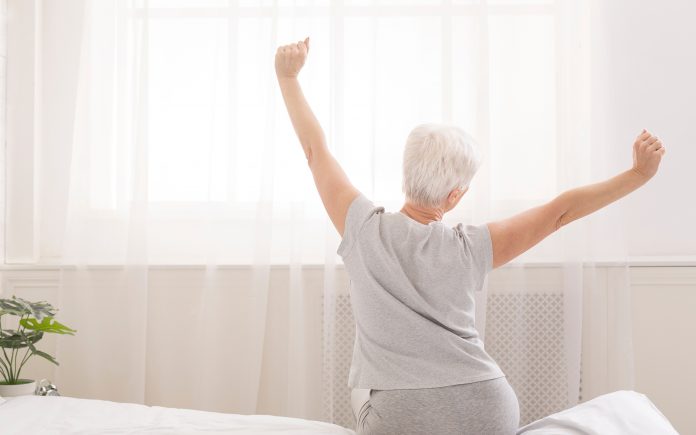
Did you have a good night’s sleep last night? Can you remember when you had a good night’s sleep? Are you getting enough sleep these days? Why do many seniors have sleep problems? I did some research about seniors and sleep issues that was quite informative and helpful. Here are some of the things I learned about seniors and sleep.
Why Can’t I Fall Asleep?
The Psych Central site says that with age, adults spend gradually less time in deep sleep and more time in the lighter stages of sleep. Older adults are more prone to sleeping disorders such as insomnia, sleep apnea and restless leg syndrome. Also, medical conditions like arthritis, depression and acid reflux can interfere with an uninterrupted night’s sleep. Many common medications such as blood pressure medicine, statins and antidepressants can cause sleep problems too.
There are some things you can do to help diminish your sleep issues. Maintaining a regular sleep-wake schedule reinforces your body’s circadian rhythm and helps regulate the body’s sleep drive. Other tips on this site are to get regular exercise and take short naps during the day, but never in the late afternoon or early evening. For a closer look at the facts on this site, click here.
Seniors and Sleep Problems
This next website says, “Seniors don’t need more sleep, they need better sleep.” In fact, we seniors don’t need any more sleep than any other adult. It goes on to state that in older adults, the architecture of your sleep changes, and you get less deep sleep which means you will probably have more awakenings. This could set up a vicious cycle of getting less sleep at night and tending to make up for it during the day with naps which leads to less sleep at night and so on.
Some sleep issues are caused from natural biological changes, but a lot is environmental or behavioral and can be within your control. For instance, doing some light exercise daily, getting exposure to natural sunlight, limiting your consumption of alcohol and caffeine, and avoiding daytime naps can greatly increase your chances for a peaceful sleep. I hope you will go to this site and read the complete list of ways to help yourself get a good night’s sleep. Click here.
Seniors and Sleep: Five Things You May Not Know
In March, The National Sleep Foundation sponsors National Sleep Awareness Week which appropriately enough ends the week with the clock change for Daylight Savings Time when we lose an hour of sleep! Just a reminder that most of us don’t get enough sleep. You probably realize that certain illnesses can lead to poor sleep, but did you know that poor sleep can lead to or hasten certain health problems such as heart disease, memory loss and Parkinson’s Disease among others? Another interesting thing I didn’t know about sleep is that good sleep is essential to maintaining a healthy weight. Even a single night of sleep loss can both increase your appetite and decrease the amount of energy you use the next day. That combo over time, can result in a steady weight gain.
To fall asleep fast, bring a book to bed rather than your laptop, smart phone or TV remote. Artificial light exposure between dusk and bedtime can suppress and shift your circadian rhythms to a later hour making it more difficult to go to sleep. Click here to read more.
Well, I hope some of this information has helped you understand a little about sleep problems in older adults. Please comment on these articles, or add to this topic. Good night and sleep tight!







